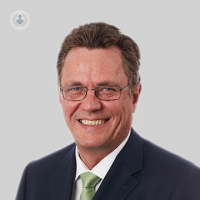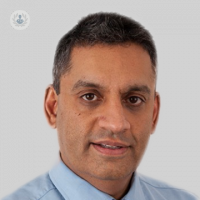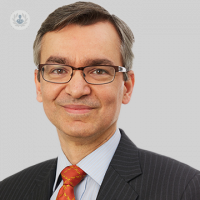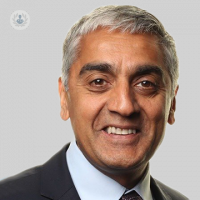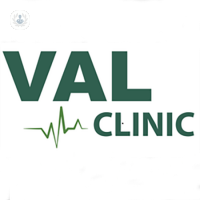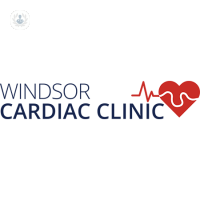What is heart failure?
Heart failure is a very serious health condition and results from various heart conditions. Heart failure is characterised by the heart’s inability to pump blood as well as it should be able to.
Therefore, blood supply to the rest of the body is inadequate, ultimately resulting in the disruption of major bodily functions. Additionally, blood cannot carry enough oxygen or nutrients to the body and as a result, waste is not properly disposed of and fluid accumulates in some parts of the body.
There are two types of heart failure: systolic, when myocardium cannot pump blood and expel it from the heart; and the diastolic, when the muscles of the heart are rigid and do not fill with blood.

What are the symptoms of heart failure?
The symptoms of heart failure vary according to each person. In the initial phase there are usually no symptoms, but if it progresses, the symptoms may worsen. The main symptoms include:
- Palpitations
- Dizziness
- Coughing and wheezing
- Weight gain
- Swelling in the ankles
- Abdominal swelling
- Loss of appetite
What causes heart failure?
The most common causes of heart failure are coronary heart disease, such as angina pectoris or myocardial infarction. High blood pressure is also another common cause of this disease, as well as excessive alcohol consumption. The following can also result in heart failure:
- Inherited cardiac conditions
- Congenital heart defects
- Arrhythmias
- Thyroid problems
- Drug use
- Diabetes
Can heart failure be prevented?
Heart failure can be prevented by making serious lifestyle changes that will reduce cardiovascular risk factors. These changes include:
- Smoking cessation
- Eating foods low in fat and cholesterol
- Maintaining a healthy weight
- Doing regular exercise
- Getting enough sleep and rest
- Reducing your salt intake
What is the treatment?
There is no certain cure for heart failure, and treatment will depend on the severity of your condition. Treatment will aim to increase your lifespan and may include taking medication to reduce clotting, reduce cholesterol levels, improve heart function or to reduce sodium levels in the blood.
Surgery may also be needed, such as coronary bypass surgery. It may also be necessary to have a pacemaker or ICD fitted to control heart rhythm. The last stage for treating heart failure would be a heart transplant, but this is only done if all other treatments have failed and there is a viable heart from a donor. A large part of treatment is preventative, by adopting healthy lifestyle changes.
11-13-2012 10-24-2023Heart failure
What is heart failure?
Heart failure is a very serious health condition and results from various heart conditions. Heart failure is characterised by the heart’s inability to pump blood as well as it should be able to.
Therefore, blood supply to the rest of the body is inadequate, ultimately resulting in the disruption of major bodily functions. Additionally, blood cannot carry enough oxygen or nutrients to the body and as a result, waste is not properly disposed of and fluid accumulates in some parts of the body.
There are two types of heart failure: systolic, when myocardium cannot pump blood and expel it from the heart; and the diastolic, when the muscles of the heart are rigid and do not fill with blood.

What are the symptoms of heart failure?
The symptoms of heart failure vary according to each person. In the initial phase there are usually no symptoms, but if it progresses, the symptoms may worsen. The main symptoms include:
- Palpitations
- Dizziness
- Coughing and wheezing
- Weight gain
- Swelling in the ankles
- Abdominal swelling
- Loss of appetite
What causes heart failure?
The most common causes of heart failure are coronary heart disease, such as angina pectoris or myocardial infarction. High blood pressure is also another common cause of this disease, as well as excessive alcohol consumption. The following can also result in heart failure:
- Inherited cardiac conditions
- Congenital heart defects
- Arrhythmias
- Thyroid problems
- Drug use
- Diabetes
Can heart failure be prevented?
Heart failure can be prevented by making serious lifestyle changes that will reduce cardiovascular risk factors. These changes include:
- Smoking cessation
- Eating foods low in fat and cholesterol
- Maintaining a healthy weight
- Doing regular exercise
- Getting enough sleep and rest
- Reducing your salt intake
What is the treatment?
There is no certain cure for heart failure, and treatment will depend on the severity of your condition. Treatment will aim to increase your lifespan and may include taking medication to reduce clotting, reduce cholesterol levels, improve heart function or to reduce sodium levels in the blood.
Surgery may also be needed, such as coronary bypass surgery. It may also be necessary to have a pacemaker or ICD fitted to control heart rhythm. The last stage for treating heart failure would be a heart transplant, but this is only done if all other treatments have failed and there is a viable heart from a donor. A large part of treatment is preventative, by adopting healthy lifestyle changes.
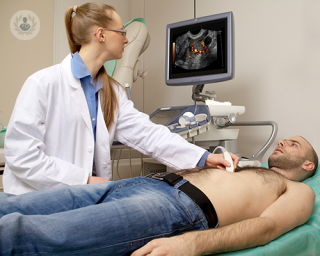

Echocardiogram: a powerful diagnostic tool for the heart
By Dr Malcolm Burgess
2024-11-21
An echocardiogram (a cardiac ultrasound) is used to assess most types of heart disease. Dr Malcolm Burgess explains when this diagnostic tool is used, the accuracy of results and what next steps might be needed. See more
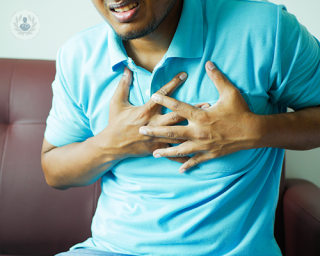

How quickly does heart failure progress?
By Dr Ganesan Kumar
2024-11-21
Heart failure is a chronic condition that occurs when the heart is unable to pump oxygen-rich blood as well as it should to meet the body’s demands. Here, Dr Ganesan Kumar, highly experienced consultant cardiologist, provides an expert insight into heart failure, including its symptoms, treatment and progression. See more


Heart failure and breathlessness: what is the link?
By Dr Gosia Wamil
2024-11-21
Breathlessness is a frequently occurring symptom of heart failure, which can often lead to patients experiencing panic and stress. Distinguished consultant cardiologist Dr Gosia Wamil explores the relationship between breathlessness and heart failure. See more
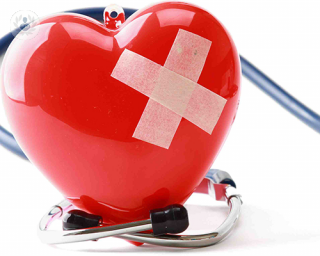

Understanding the four stages of congestive heart failure
By Dr Kare Tang
2024-11-21
Dr Kare Tang, one of our top consultant cardiologists, walks us through the four stages of heart failure and offers us an insight into what a treatment plan might look like if you have received a diagnosis. See more
Experts in Heart failure
-
Dr Michael John Van der Watt
CardiologyExpert in:
- Heart murmur
- Palpitations
- Syncope
- Angina
- Heart failure
- Pacemaker
-
Professor Rajan Sharma
CardiologyExpert in:
- Echocardiogram
- Coronary heart disease
- Valvular heart disease
- Heart failure
- Hypertension (high blood pressure)
- Palpitations
-
Mr Masood Khan
CardiologyExpert in:
- Echocardiogram
- Valvular heart disease
- Chest pain
- Hypertension (high blood pressure)
- Heart failure
- Pacemaker
-
Professor Sanjay Sharma
CardiologyExpert in:
- Sports cardiology
- Dilated cardiomyopathy
- Sudden death
- Hereditary diseases
- Echocardiogram
- Heart failure
-
Dr Andrew Deaner
CardiologyExpert in:
- Valvular heart disease
- Cardiovascular disease
- Coronary angioplasty
- Echocardiogram
- Pacemaker
- Palpitations
- See all

VAL Clinic
VAL Clinic
39 Frederick Rd, Rainham, RM13 8NJ
No existe teléfono en el centro.
By using the telephone number provided by TOP DOCTORS, you automatically agree to let us use your phone number for statistical and commercial purposes. For further information, read our Privacy Policy
Top Doctors

Windsor Cardiac Clinic
Windsor Cardiac Clinic
3 Chobham Road Sunningdale Ascot SL5 0DP
No existe teléfono en el centro.
By using the telephone number provided by TOP DOCTORS, you automatically agree to let us use your phone number for statistical and commercial purposes. For further information, read our Privacy Policy
Top Doctors

77 Wimpole Street
77 Wimpole Street
77 Wimpole Street, London. W1G 9RU
No existe teléfono en el centro.
By using the telephone number provided by TOP DOCTORS, you automatically agree to let us use your phone number for statistical and commercial purposes. For further information, read our Privacy Policy
Top Doctors
-
VAL Clinic
39 Frederick Rd, Rainham, RM13 8NJ, East LondonExpert in:
- Cardiology
- Bariatric Surgery
- Orthopaedic surgery
- Dermatology
- Obstetrics and Gynaecology
- Internal medicine
-
Windsor Cardiac Clinic
3 Chobham Road Sunningdale Ascot SL5 0DP, AscotExpert in:
- Arrhythmia
- Cardiology
- Preventive cardiology
- Diagnostic Imaging
- Cardiovascular disease
- Hypertension
-
77 Wimpole Street
77 Wimpole Street, London. W1G 9RU, W1G Marylebone LondonExpert in:
- Homecare
- Cardiology
- Preventive cardiology
- Cardiovascular disease
- Respiratory diseases
- Hypertension
- See all
- Most viewed diseases, medical tests, and treatments
- Autoimmune diseases
- Joint pain
- Nutrition
- Genetic testing
- Abdominal pain
- Minimal access surgery (keyhole surgery)
- Vaginal cytology
- Aortic aneurysms
- Parkinson's disease
- Biomarkers

